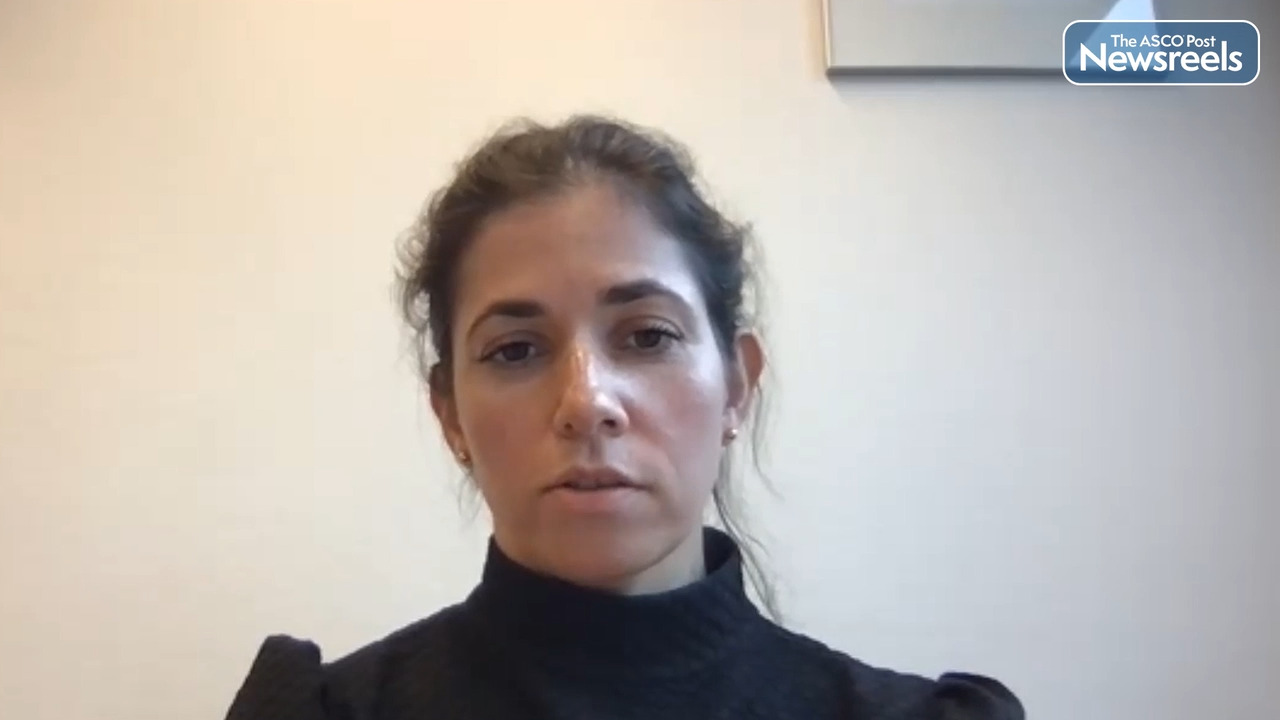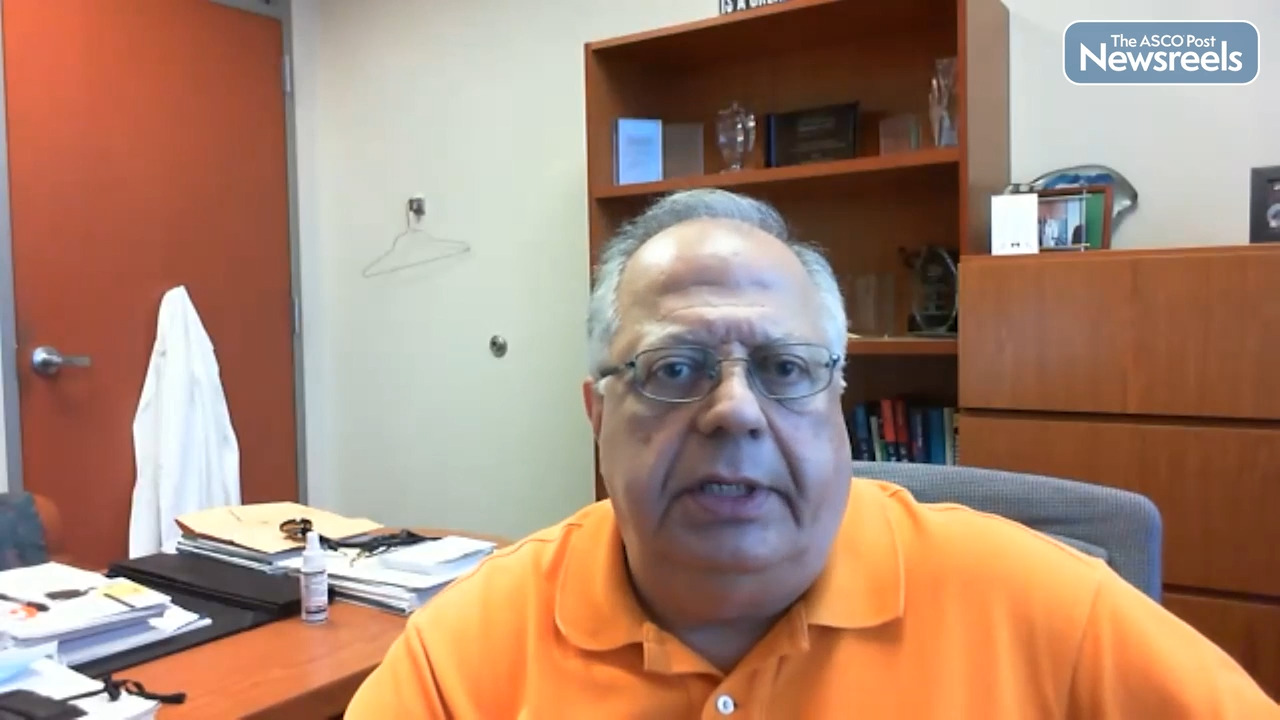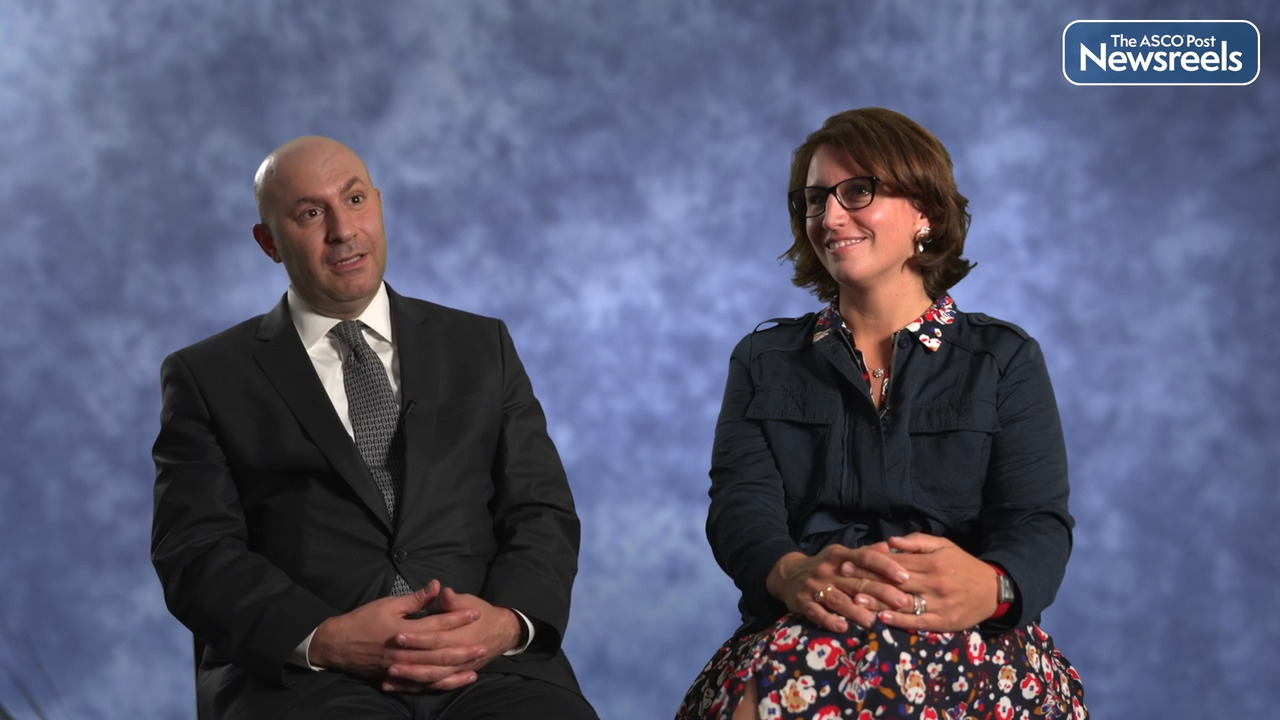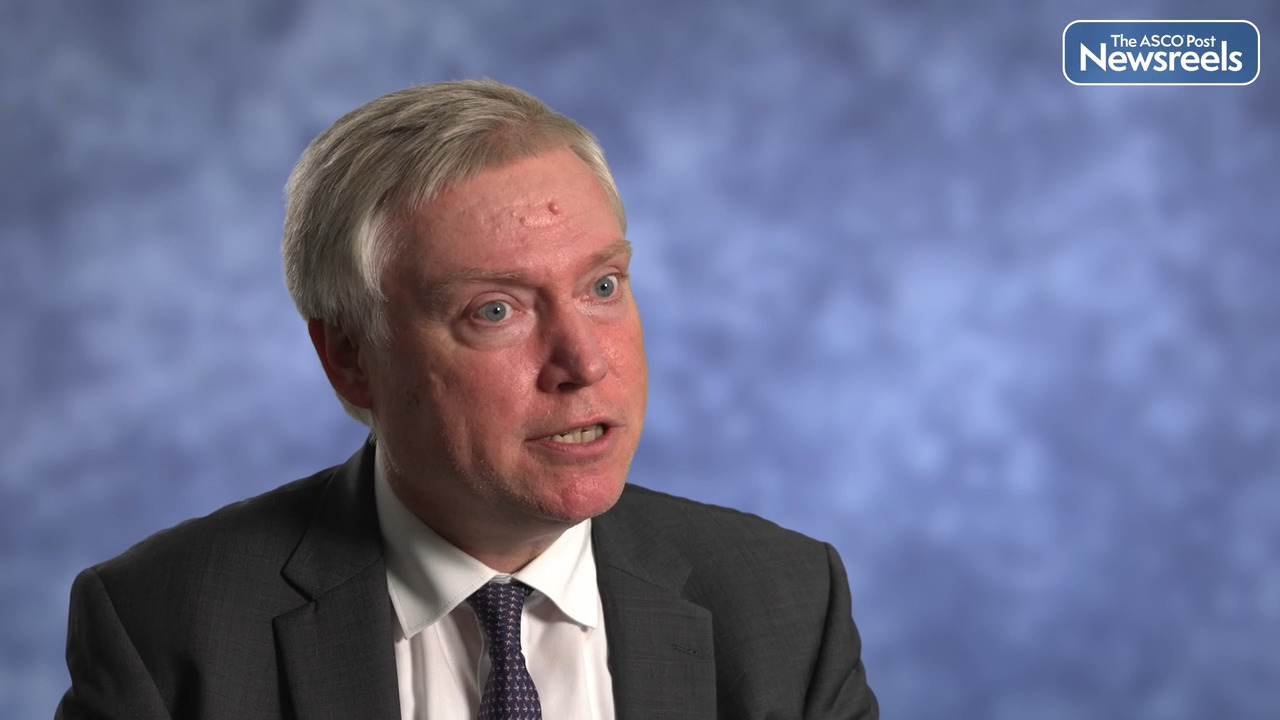Richard S. Finn, MD, on Hepatocellular Carcinoma: Recent Data on Lenvatinib Plus Pembrolizumab
ESMO Congress 2022
Richard S. Finn, MD, of the Geffen School of Medicine at the University of California, Los Angeles, discusses primary phase III results from the LEAP-002 study of pembrolizumab, an anti–PD-1 therapy, plus lenvatinib, the orally available multiple receptor tyrosine kinase inhibitor, vs lenvatinib monotherapy in patients with advanced hepatocellular carcinoma (Abstract LBA34).
Transcript
Disclaimer: This video transcript has not been proofread or edited and may contain errors.
The LEAP-002 study was a large phase three double blind placebo controlled study in advanced liver cancer in the frontline setting, evaluating the combination of Lenvatinib and Pembrolizumab versus Lenvatinib alone. This study was based on earlier data, a single arm phase one B study in the frontline setting with both these drugs, which showed very interesting activity. A 36% objective response rate, as well as a survival of over 21 months, which in the first line setting of liver cancer was a signal to pursue this definitive study. Lenvatinib has already approved in the front line setting in the United States and Pembrolizumab has accelerated approval in the second line setting. So in this study, we demonstrated that the overall survival with the combination was over 21 months, which was expected. However, the control arm performed much better than we expected. That is to say Lenvatinib had a survival of about 19 months in this population.
If we look at historical data with Lenvatinib, from the REFLECT study, the pivotal study that got it approved, overall survival was about 13 and a half months. So unfortunately, the study did not meet its primary endpoint of overall survival. There was a dual primary endpoint of PFS, and again, at the primary analysis for PFS, there was no significant difference between the two arms. We did see that with longer follow up that there was a tail to the curve for Len Pembro, looking at the two year benchmark about 16% of patients did not progress with a combination, whereas 9% on single agent Lenvatinib did not progress. When we look at objective responses, the objective response rate with the combination was 25% in line with what we saw in the phase one B and Lenvatinib had a response rate of about 17 and half percent, which was in line with what was expected with single agent Lenvatinib.
When we look at safety, there were really no new safety signals. The safety profile looked like single agent Lenvatinib, no added toxicity with Pembrolizumab, but at the end of the day, the study did not meet its end point. We did establish that the combination does prolong a long survival in advanced liver cancer and specifically Lenvatinib as a single agent in advanced liver cancer provided a survival of 19 months, which is really a reminder that this drug plays an important role in our patients with advanced liver cancer, even in this modern age of new combinations that are being evaluated and being approved.
The ASCO Post Staff
Myriam Chalabi, MD, PhD, of The Netherlands Cancer Institute, discusses data from the NICHE-2 study, which confirms previously reported pathologic responses to short-term neoadjuvant nivolumab plus ipilimumab in patients with locally advanced mismatch repair–deficient colon cancer. Survival data suggest neoadjuvant immunotherapy may become standard of care and allow further exploration of organ-sparing approaches. (Abstract LBA7).
The ASCO Post Staff
Nizar M. Tannir, MD, of The University of Texas MD Anderson Cancer Center, discusses phase III findings from the PIVOT-09 study, which compared bempegaldesleukin plus nivolumab with the investigator’s choice of a tyrosine kinase inhibitor (either sunitinib or cabozantinib) in patients with previously untreated advanced renal cell carcinoma (Abstract LBA68).
The ASCO Post Staff
Rahul Aggarwal, MD, of the University of California, San Francisco, discusses recent data from the PRESTO study, which showed that apalutamide plus androgen-deprivation therapy (ADT) for 12 months significantly prolonged PSA progression-free survival compared with ADT alone in patients with biochemically recurrent prostate cancer. These results provide support for the intensification of ADT in this setting. (Abstract LBA63).
The ASCO Post Staff
Toni K. Choueiri, MD, of the Dana-Farber Cancer Institute, and Laurence Albiges, MD, PhD, of France’s Gustave Roussy Cancer Centre, discuss phase III findings showing that cabozantinib in combination with nivolumab and ipilimumab reduced the risk of disease progression or death compared with the combination of nivolumab plus ipilimumab in patients with previously untreated advanced renal cell carcinoma of IMDC (the International Metastatic RCC Database Consortium) intermediate or poor risk. However, the combination of cabozantinib, nivolumab, and ipilimumab vs nivolumab plus ipilimumab did not demonstrate an overall survival benefit to patients (Abstract LBA8).
The ASCO Post Staff
Martin Reck, MD, PhD, of Germany’s Lung Clinic Grosshansdorf, details two trials that included patients with advanced non–small cell lung cancer: 3-year survival outcomes in the EMPOWER-Lung 1 study of continued cemiplimab-rwlc beyond disease progression with the addition of chemotherapy, and phase III results from the IFCT-1701 trial of nivolumab plus ipilimumab 6-month treatment vs treatment continuation (LBA54 and Abstract 972O).





